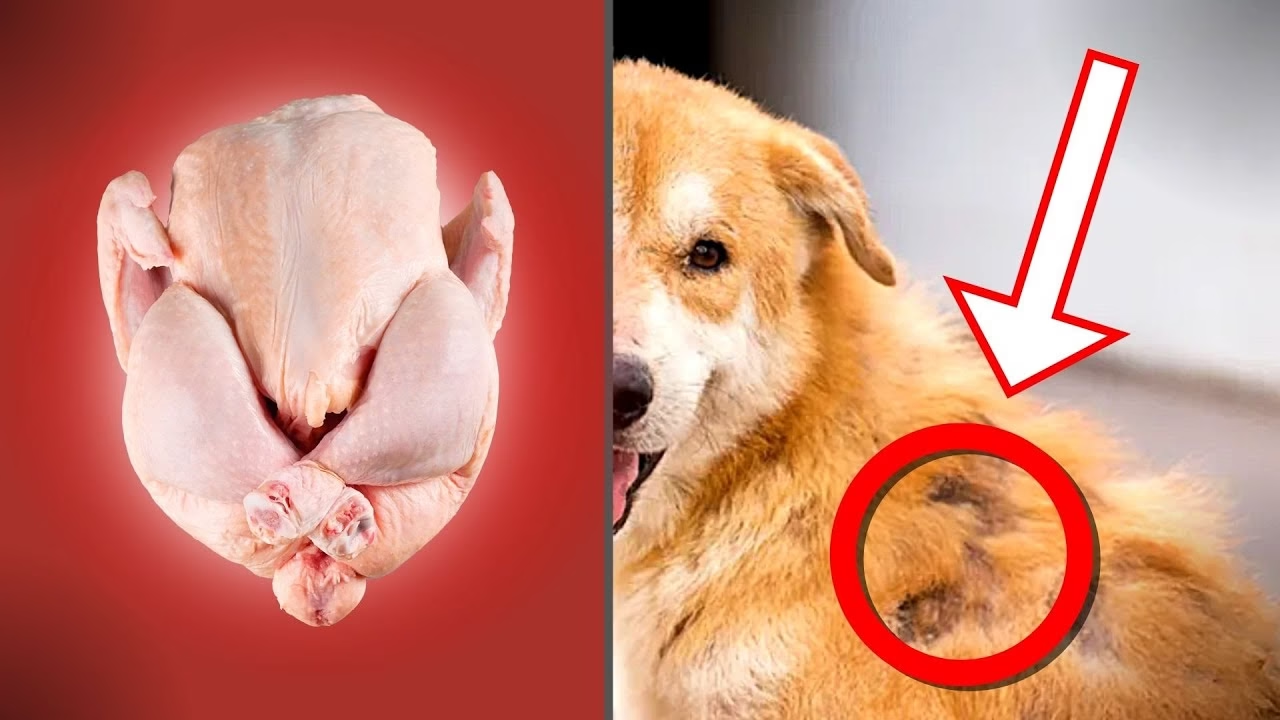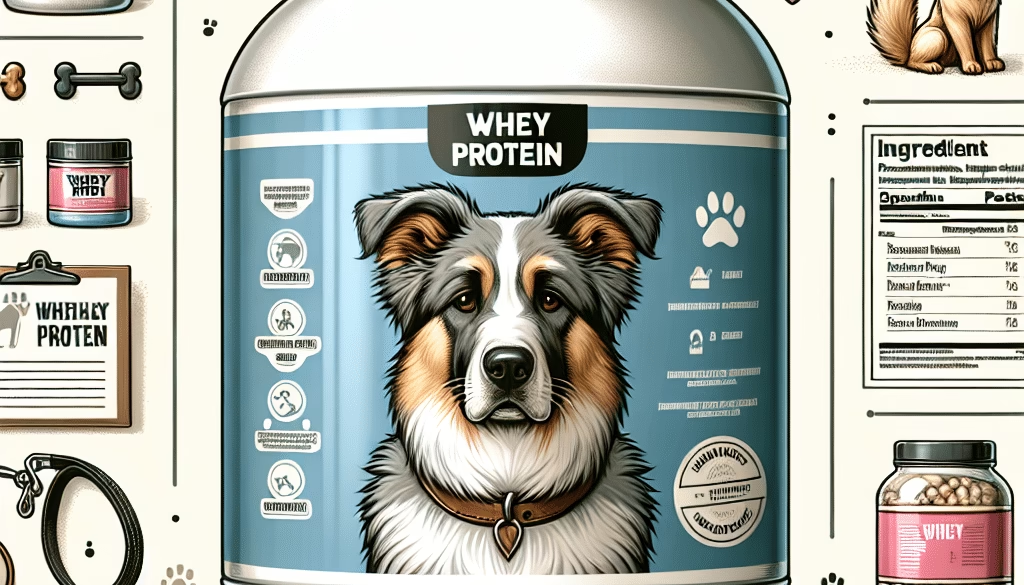- Whey Protein for Dogs: A Healthy Addition or a Risky Choice?
- Introduction
- What Is Whey Protein?
- Benefits of Whey Protein for Dogs
- Potential Risks and Side Effects of Whey Protein for Dogs
- How to Safely Introduce Whey Protein to Your Dog’s Diet
- Signs Your Dog Might Be Intolerant to Whey Protein
- Impact of Whey Protein on Active and Older Dogs
- The Role of Protein in a Dog’s Overall Diet
- Alternative Protein Sources for Dogs
- How to Ensure a Balanced Diet for Your Dog
- Monitoring Your Dog’s Health After Adding Whey Protein
- The Importance of Veterinarian Consultation
- Conclusion
- FAQS
- Introduction
Whey Protein for Dogs: A Healthy Addition or a Risky Choice?
Introduction
Whey protein, a popular supplement in human fitness circles, has recently gained attention as a potential addition protein for dogs diets. As pet owners seek ways to enhance their dogs’ health and performance, the idea of offering whey protein as a dietary supplement has sparked curiosity. But is this protein powder a healthy boost for dogs, or could it pose risks to their well-being? While whey protein offers various benefits for humans, its suitability for dogs depends on several factors, including their size, activity level, and individual health conditions. From supporting muscle recovery in active dogs to helping manage weight in older pets,
whey protein may offer some advantages. However, it also carries potential risks such as lactose intolerance, digestive issues, and kidney stress. This article aims to explore the pros and cons of adding whey protein to your dog’s diet, helping you make an informed decision for your furry friend’s health.
What Is Whey Protein?

Whey protein is a high-quality protein derived from milk during the cheese-making process. It contains all nine essential amino acids, making it a complete protein source. Typically, whey protein is sold in powdered form and is commonly used by athletes for muscle recovery and growth. While it’s a popular supplement for humans, its application in canine diets is less understood. It’s important to note that not all whey protein products are the same, and some may contain additives that could affect your dog’s health.
Benefits of Whey Protein for Dogs
Whey protein may offer various benefits for dogs, particularly those with higher physical demands. For active dogs, it can help build and repair muscle tissue after exercise. Older dogs may also benefit, as it provides essential amino acids that support joint and bone health. Additionally, it can help manage weight by promoting lean muscle mass and reducing excess fat. Whey protein may also support the immune system, providing protein for dogs with better overall health and vitality.
Potential Risks and Side Effects of Whey Protein for Dogs
While whey protein offers benefits, it’s not without its risks. One of the most significant concerns is lactose intolerance, which affects many protein for dogs and can lead to digestive upset, including diarrhea and bloating. Overconsumption of protein may also put strain on a dog’s kidneys, particularly in older or pre-existing health conditions. Furthermore, some dogs may develop allergies or sensitivities to dairy proteins. It’s essential to monitor your dog for signs of discomfort when introducing whey protein into their diet.
How to Safely Introduce Whey Protein to Your Dog’s Diet
When considering adding whey protein to your dog’s diet, it’s crucial to introduce it gradually. Start with a small amount and observe for any signs of intolerance or allergies, such as digestive upset or skin reactions. Always consult with a veterinarian before beginning any new supplement to ensure it’s suitable for your dog’s health and nutritional needs. The right dosage depends on factors like your dog’s size, age, and activity level. Veterinarians can also recommend the most appropriate type of whey protein for your pet, such as a low-lactose or isolate version.
Signs Your Dog Might Be Intolerant to Whey Protein

Not all protein for dogs tolerate whey protein well, and some may experience adverse reactions. Symptoms of intolerance include diarrhea, bloating, gas, or vomiting after consuming whey protein. If your dog shows any of these signs, it’s essential to stop using the supplement and consult with a vet. In more severe cases, some dogs may experience skin rashes or itching, indicating an allergy to dairy. Being vigilant about these symptoms helps prevent health complications associated with whey protein.
Impact of Whey Protein on Active and Older Dogs
Whey protein can have different effects on dogs depending on their activity levels and age. Active dogs, such as working or athletic protein for dogs, may benefit from the muscle-repairing properties of whey protein, helping them recover after intense physical activity. For older dogs, whey protein can support lean muscle mass, which naturally declines with age. Additionally, it may assist in managing body weight and providing essential nutrients for overall health. However, it’s important to adjust the dosage based on their specific needs and consult a vet to avoid overloading their system with protein.
The Role of Protein in a Dog’s Overall Diet
Protein plays a crucial role in a dog’s diet, supporting muscle growth, tissue repair, and immune function. It also helps maintain healthy skin and coat, and supports proper organ function. While protein is essential, it’s important to provide a balanced diet that includes the right amounts of protein, fats, and carbohydrates. Too much protein can strain a dog’s kidneys and lead to other health issues, so it’s crucial to determine the appropriate protein levels based on the dog’s breed, size, and health status.
Alternative Protein Sources for Dogs
While whey protein may offer benefits, it’s not the only protein option for protein for dogs. Natural sources such as chicken, beef, lamb, and fish are excellent alternatives that provide high-quality protein along with essential fatty acids and vitamins. Many commercial dog foods are formulated to meet dogs’ protein requirements, ensuring a balanced nutrient profile. For dogs with food sensitivities or allergies, there are also limited-ingredient diets with alternative protein sources like turkey, venison, or plant-based options, providing variety without compromising their health.
How to Ensure a Balanced Diet for Your Dog
Ensuring that your dog receives a balanced diet is key to their overall health and well-being. In addition to protein, protein for dogsrequire fats, carbohydrates, vitamins, and minerals to maintain optimal body function. Commercial dog food is typically designed to meet these nutritional needs, protein for dogs with special dietary needs, you may need to customize their diet with guidance from a veterinarian. When introducing supplements like whey protein, it’s important to ensure that their overall diet remains balanced and supports their unique health requirements.
Monitoring Your Dog’s Health After Adding Whey Protein

After introducing whey protein to your dog’s diet, it’s important to closely monitor their health for any signs of adverse reactions. Keep an eye on their behavior, energy levels, and digestive health. Changes in appetite, excessive thirst, or unusual lethargy could signal that the whey protein isn’t agreeing with them. Additionally, any gastrointestinal issues, such as diarrhea or vomiting, should prompt you to stop the supplement and consult your veterinarian. Regular health check-ups will help ensure that your dog is benefiting from the supplement without experiencing negative side effects.
The Importance of Veterinarian Consultation
Before incorporating whey protein or any other supplement into your dog’s diet, consulting with a veterinarian is essential. Veterinarians can assess your dog’s specific nutritional needs based on their breed, age, size, and health status. They can also advise you on the correct dosage and the best form of protein to use. A professional evaluation helps ensure that whey protein won’t interfere with your dog’s existing health conditions or medications, and it helps to avoid unnecessary risks associated with incorrect supplementation.
Conclusion
Whey protein can offer several potential benefits for dogs, particularly for those with increased physical activity or older dogs needing additional support for muscle mass and recovery. However, it’s important to approach the supplement with caution, considering possible risks such as lactose intolerance, digestive issues, and protein overload. By gradually introducing whey protein, monitoring for adverse reactions, and consulting with your veterinarian, you can make an informed decision about whether whey protein is a healthy addition to your dog’s diet. Always prioritize a balanced and well-rounded diet for your pet’s long-term health.
You Can Also Read: Dog Eye Infection – Causes & Treatments Option
FAQS
Is it safe to give a dog whey protein?
Whey protein can be calorie-dense. If added to a dog’s diet without adjusting other food intake, it could contribute to weight gain, which can lead to obesity and related health issues. Dogs with certain health conditions, such as kidney disease, may be adversely affected by high protein intake.
Can dogs eat protein every day?
Every day, your dog needs 1 gram of protein per pound of his ideal body weight. What does that mean? Let’s just say that you have a 40-pound dog (which happens to be his ideal body weight). It would mean that your dog will need 40 grams of protein every day.
What is a safe protein for dogs?
The highest quality proteins contain ample essential amino acids and are easiest for the pet to digest. Beef, fish, lamb, and chicken are the healthiest sources of protein for dogs. Fish has the highest percentage of protein (29.91 %), while the rest are around 26 grams of protein per 100 grams of meat.
Are eggs good protein for dogs?
Eggs can be a great source of nutrition for dogs. They are high in protein, fatty acids, vitamins, and fatty acids that help support your dog, inside and out. Remember that eggs are only as good as the chicken they come from. Try to feed your dog eggs that are from free-range farm hens fed an organic diet.
Why is my dog always hungry?
Why is my dog always hungry? Dogs can be hungry because: it’s genetic, they’ve exercised a lot, they have health issues (such as diabetes or worms), it’s a side-effect of medication, they’re stressed, they’re bored or because they’re not getting enough of the right type of food.
